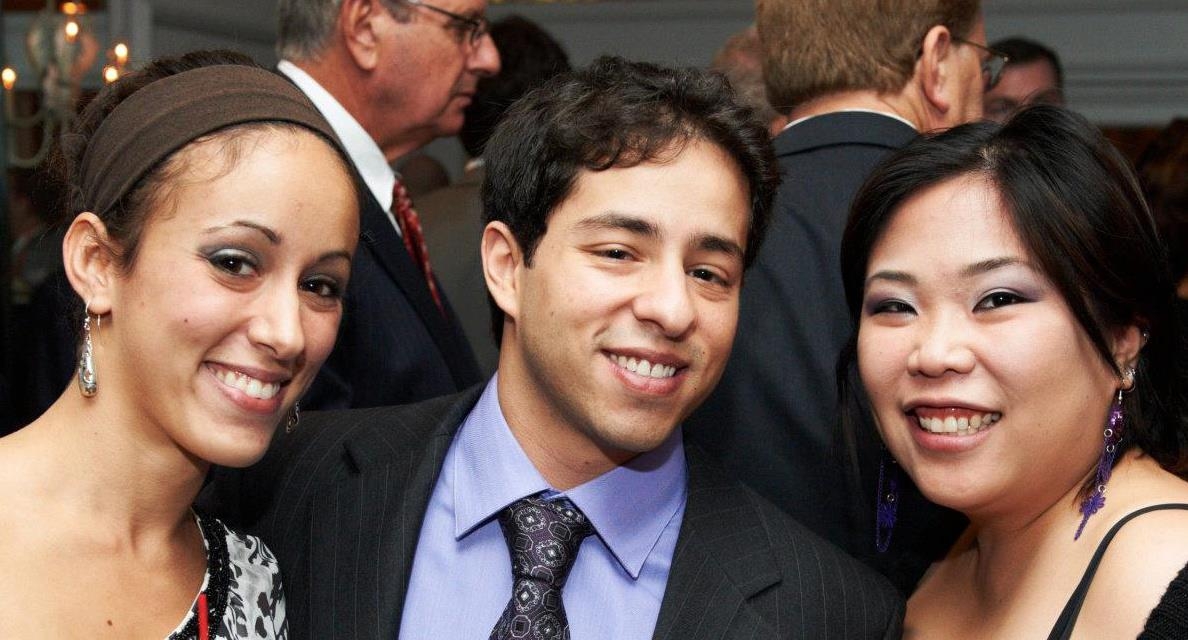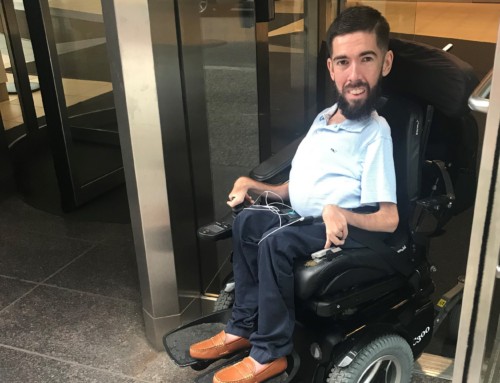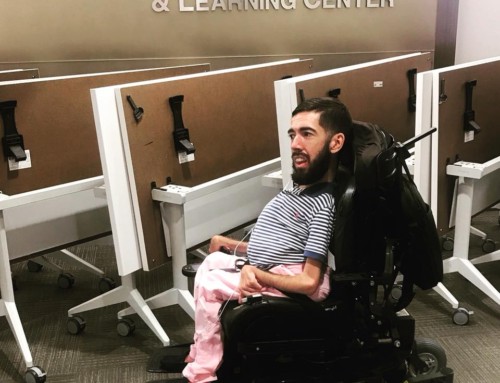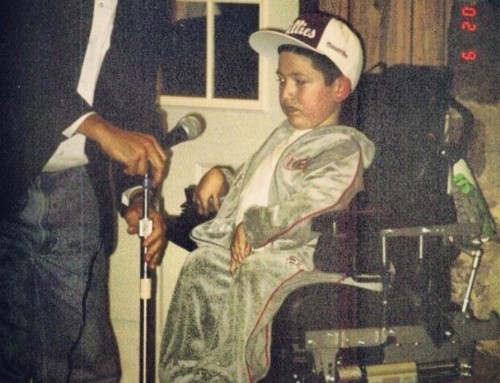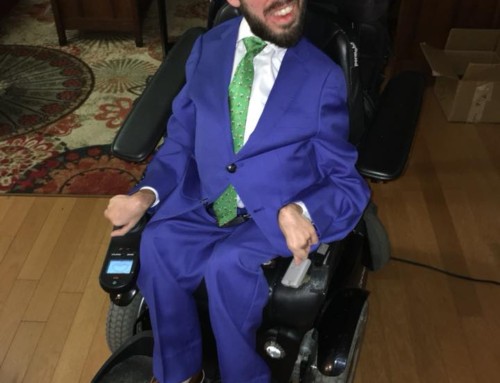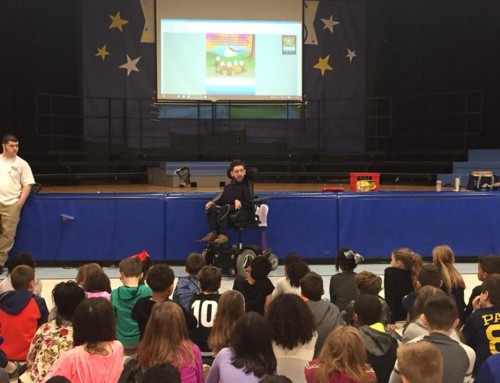For this week’s feature blogger we have Elliot Joslow, who has dedicated his professional life to working with people with disabilities. I asked him to discuss some of the barriers for people with disabilities working to disable their limitations, and I couldn’t agree more with his perspective. I know you’ll enjoy!
I am not a parent but many people have told me that once you become a parent, you will always be a parent. Once the switch is flipped, there is no turning back and understandably, it seems difficult for many parents to allow their children to become adults as ultimately, they will take a diminished role in the guidance of their children’s lives. Parents of disABLED children are no different in the sense that they want to be a supportive parent. In some cases this may mean that they have a larger role in the amount of support they provide to their adult child. Unfortunately, there are many instances where parents prevent their disABLED children‘s independence without even realizing it.
I have been lucky to work as a mental health case manager, provide direct therapy to individuals with intellectual disabilities, and to coordinate funding for home and community-based services. These experiences have afforded me the opportunity to work with people of all ages, cultures, religions, backgrounds, preferences, medical conditions, and cognitive differences. Some of these individuals strictly have physical conditions that do not influence their cognitive abilities to evaluate information or make decisions. Others experience cognitive differences and require additional support to make decisions or possibly even 24hr supervision to ensure their safety. In both cases, however, parents often do not allow these individuals to have the level of independence, choice, or freedom they deserve as an individual, as a human, and as an adult.
Consider Ms. S who worked as a registered nurse for 20 years before her multiple sclerosis forced an early retirement. Ms. S now lives with her elderly mother who cannot provide care outside of meal preparation. Ms. S has an aide that provides assistance with activities of daily living such as bathing, grooming, housekeeping, laundry, and the like. While Ms. S’s condition has caused physical limitations in addition to difficulty with her memory, she is still very intelligent and can use her skills to figure out compensatory strategies or alternative ways to complete cognitive tasks effectively in lieu of the issues with her memory. The use of these strategies has allowed Ms. S to remain independent in regard to scheduling, managing money, managing medications, and remembering other pertinent information.
Despite Ms. S’s ability, her mother feels that she needs to support her daughter by helping her manage these cognitive functions. She does not understand that while Ms. S does need support with physical tasks and struggles with various cognitive tasks, she has created practical solutions that allow her to manage them without assistance. Ironically, over the time that I have known these lovely women, Ms. S’s mother has started to have issues with her memory and gets confused more frequently compared to when we first met. In reality, she is no longer able to help her daughter manage these tasks even if it were required.
Mr. H is an individual with an intellectual disability who also has been diagnosed with an anxiety disorder. Mr. H is able to complete activities of daily living such as bathing, grooming, eating, laundry with some assistance, cleaning with some assistance, and various other physical tasks. Mr. H has difficulty making decisions, difficulty communicating, difficulty assessing danger in his environment, and requires assistance with cognitive tasks such as money management and medication management. Mr. H can verbalize his thoughts and needs fairly well but it often takes him a while to think of the words to express himself. If asked a question for example, Mr. H may take a minute or two to answer the question but his delayed response may make it seem as if he did not hear or understand the question. If Mr. H is given the appropriate amount of time to render his response, he would be able to respond clearly and appropriately. His parents would often answer for him or pressure him to respond faster.
Additionally, Mr. H is fairly immature in the sense that he still is interested in toys and children’s entertainment. Mr. H’s parents were hesitant to try new activities with him to an extent as they assumed he would not enjoy certain experiences despite any solid logical basis for this conclusion. It seems that his parents assumed he would not like more adult material because he enjoyed the children’s material and they seemed to encourage his interest in movies, music, TV shows, and toys intended for children.
Mr. H’s parents were not intentionally trying to prevent their son from becoming more independent, nor were they trying to prevent him from becoming more mature. It seems that they had their son’s best interests at heart but they certainly did not realize the way in which they hindered the improvement of his communicative speed or ability. They likely did not realize they were withholding certain experiences with the assumption he would not like it as he is often preoccupied with children’s movies and toys. It is possible that he did not show interest in more age appropriate materials because he was never exposed to these experiences or encouraged to participate in age appropriate activities.
We all need assistance from our parents, family, friends, and strangers in the community to get through life. Some people are dealt circumstances beyond their control in which they require more assistance than others. Regardless of the amount of assistance each of us may or may not require, we should all have the right to have as much control and be as independent as possible. We should all maximize our ability instead of highlighting those things we do not do well.
Elliot Joslow is a Philadelphia native who has spent his career in the field of social work. He graduated from the University of Arizona in 2002 with a Bachelor’s in Psychology. In his free time, he performs as a musician and loves sports.
![[dis]ABLE Logo](https://disablethebrand.com/wp-content/uploads/2014/05/jimmy-logo-1-200.jpg)
